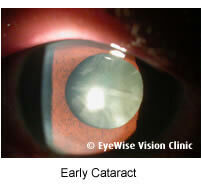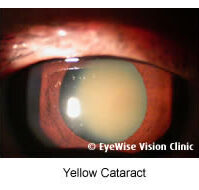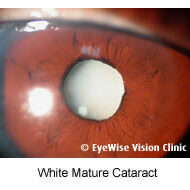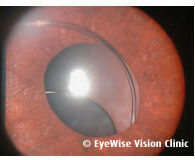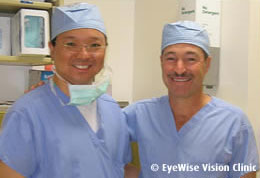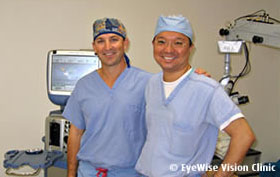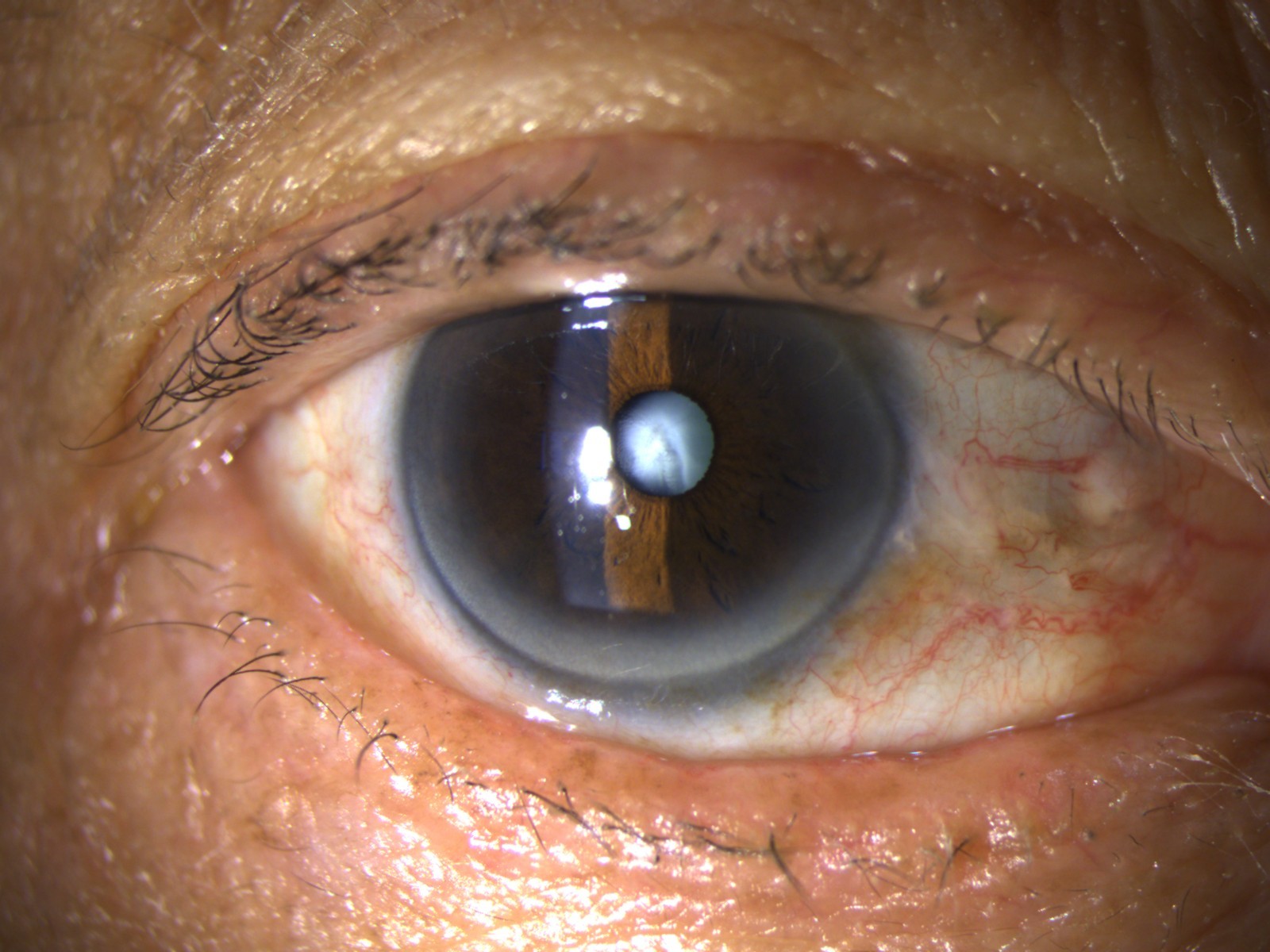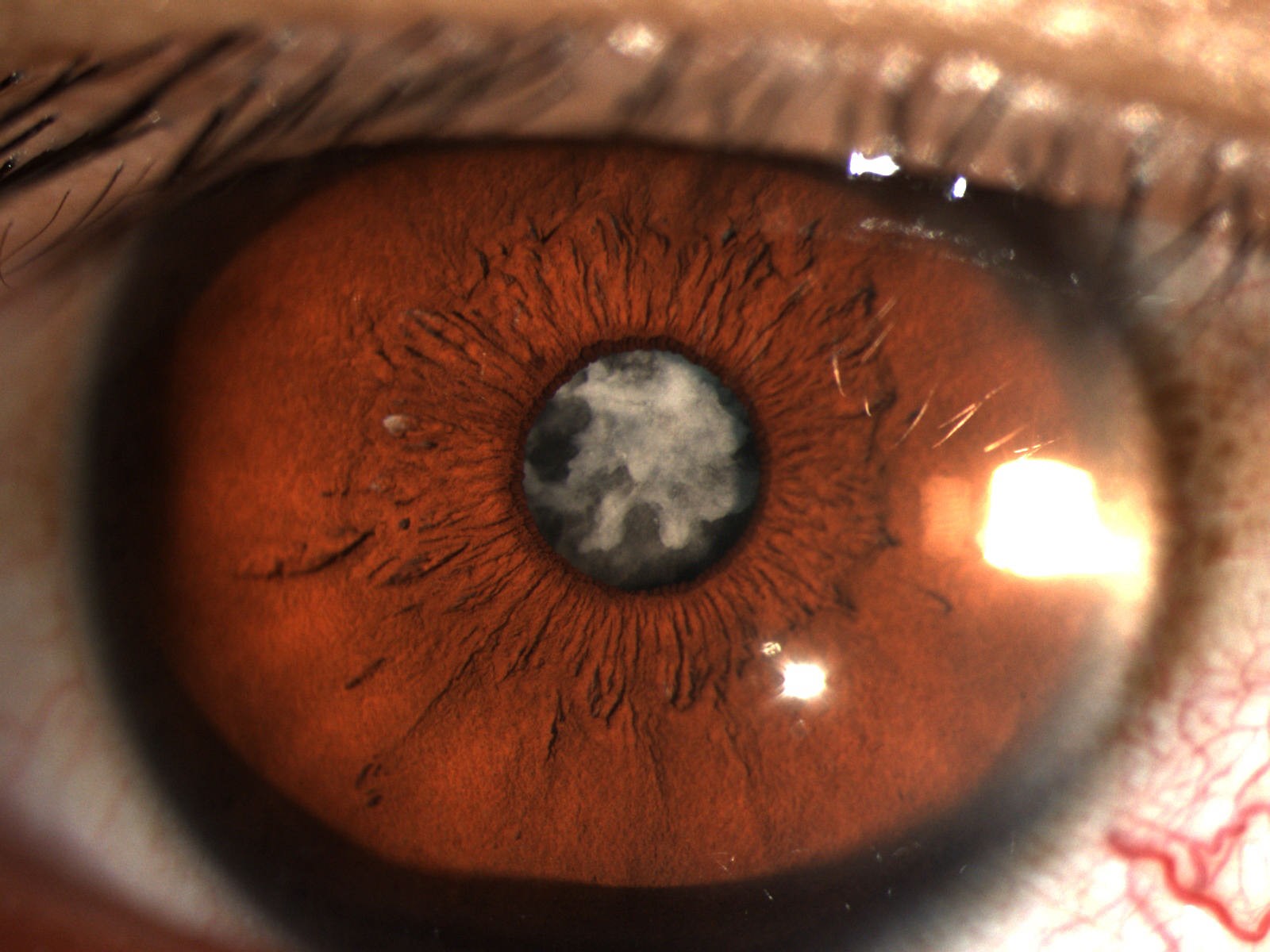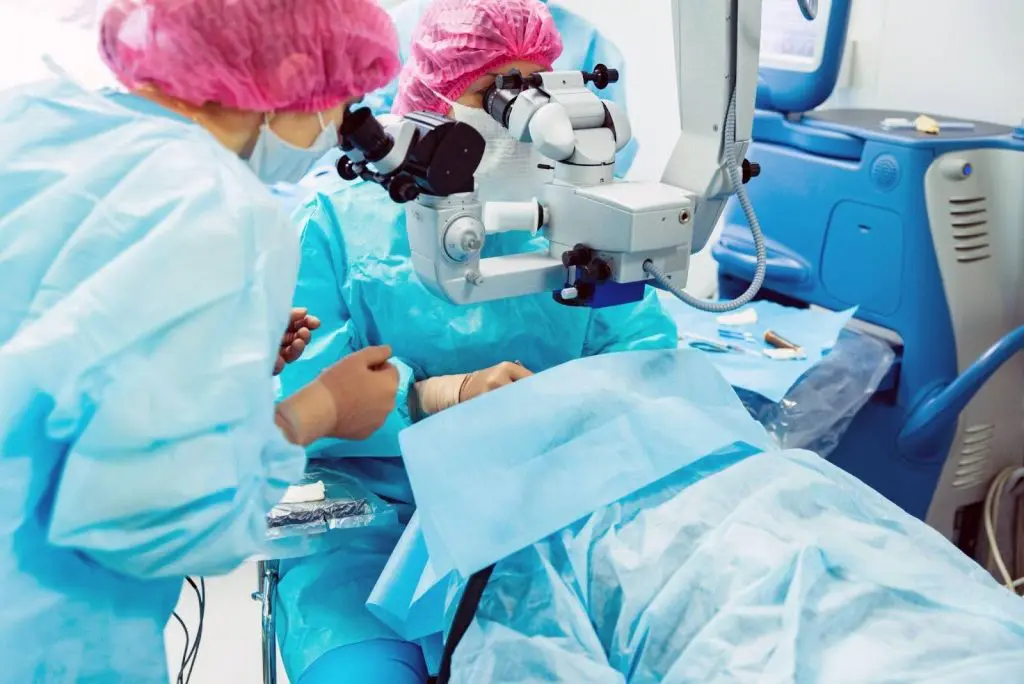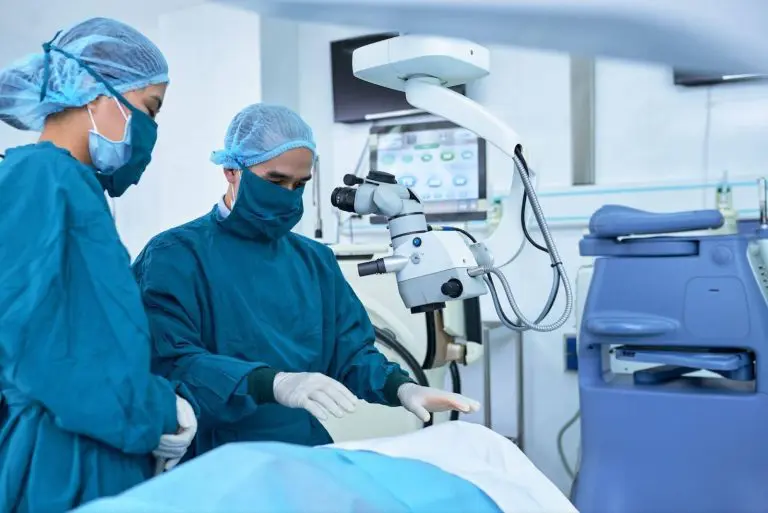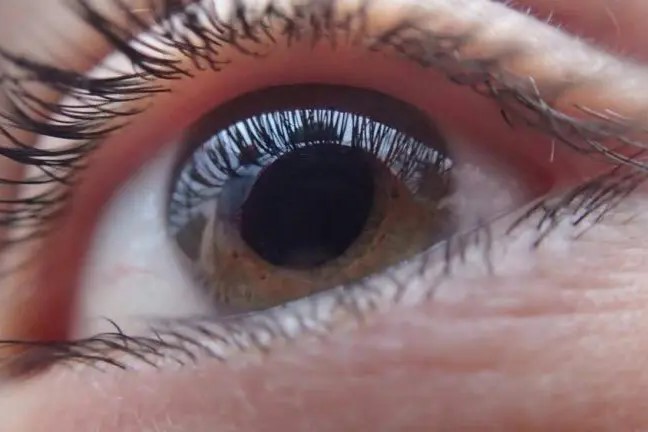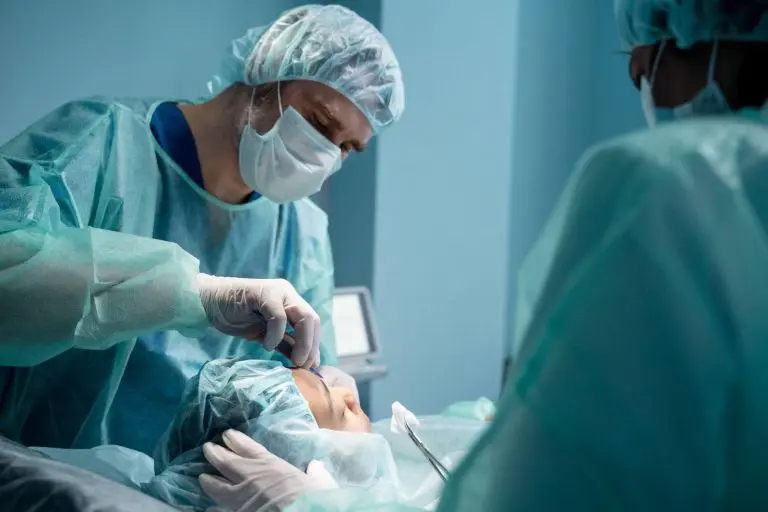Cataract Surgery
Cataract surgery in Singapore is a safe day procedure to remove a cloudy lens affected by cataracts. EyeWise Vision Clinic’s eye specialist, Dr Khng, is aware of complex cataract surgical methods, having completed overseas clinical fellowships in the US in complex lens surgery and iris repair.
TABLE OF CONTENTS
What is a Cataract?
A cataract refers to any clouding of the normally clear human natural crystalline lens. This can occur as a result of normal ageing or may be accelerated by some medical illnesses such as diabetes. The appearance of different types of cataracts is shown in these photos.
Symptoms of Cataracts
If you’re experiencing any of the following symptoms, it may be time to consider consulting a cataract surgeon for a thorough evaluation and potential cataract eye surgery:
- Blurred Vision
- Difficulty with Night Vision
- Sensitivity to Light
- Seeing Halos
- Colour Distortion
Diagnosing Cataracts
It is advised that you undergo regular examinations with an eye specialist to ensure that abnormalities are detected early. During the examination, your cataract doctor will administer several tests:
- Prescriptive power measurement: Lenses of different degrees will be placed before your eye.
- Eye pressure measurement: This test determines your risk of contracting glaucoma.
- Cataract test: The specialist will dilate your pupil with eye drops before using a Slit Lamp to examine your eye for cataracts and other conditions.
Cataract Surgery
1. Micro-Incision Phacoemulsification
- This operation involves the use of ultrasound energy to emulsify cataracts.
- The cataract surgeon will remove the cloudy lens from the eye through a tiny incision.
- The old lens will be replaced with a new man-made lens implant through the same incision.
- A special liquid is used to seal the incision, reducing the risk of complications after the cataract surgery.
The cataract surgeon may also perform astigmatism, myopia, hyperopia, and presbyopia correction during surgery.
2. Extracapsular Cataract Extraction
- This type of cataract surgery involves the removal of the natural lens through a large (~10 mm) incision.
- The incision will be closed with sutures or stitches.
- There is a higher complication risk due to larger incisions.
This cataract surgery has become less common as procedures like micro-incision phacoemulsification become increasingly favoured.
Recovering from Cataract Surgery
As driving is not advised, you must arrange for someone to accompany you home or take a cab after your cataract surgery. Also, protect your eyes with sunglasses as they may be sensitive to light. Recovery may take a month, with prompt return to work possible for many. To optimise recovery, make sure to attend follow-up private consultations.
Following your cataract surgery, it’s essential to adhere to your treatment plan. Moreover, keep these tips in mind so your eyes can adjust well:
- First 12 hours: Avoid reading, using the computer, and watching television for prolonged hours.
- First 24 hours: Refrain from driving or operating heavy machinery.
- First week:
- Wear eye shields during sleep.
- Refrain from travelling.
- First two weeks:
- Prevent water from entering your eyes when showering.
- Avoid applying eye makeup.
- Avoid cooking and dusty or smoky areas where particles can cause eye irritation.Stay indoors.
- If you must leave your house, please wear protective glasses.
- First month:
- Refrain from engaging in contact sports, heavy lifting, swimming and hot yoga, or using a hot tub, jacuzzi or sauna.
- Prevent sweat from entering your eyes while exercising.
Dr Christopher Khng: Cataract Specialist
- Specialises in:
- Complex Cataract and Anterior Segment Reconstruction Surgery.
- Iris Reconstruction and Surgery for Aniridia
- Complex Lens surgery
- New Lens and Phacoemulsification Technologies
- Refractive surgery, including Phakic IOLs (Implantable Collamer Lens, ICL)
- Small-incision, topical anaesthesia phacoemulsification cataract surgery
- Education:
- Initial medical studies at Aberdeen University, Scotland
- Completed MBBS at the National University of Singapore (NUS)
- Career:
- Served as Registrar, then Associate Consultant Ophthalmic Surgeon at Singapore National Eye Centre (SNEC)
- Consultant at The Eye Institute, Tan Tock Seng Hospital, Singapore
- Surgical Expertise:
- Proficient in repairing complicated cataract cases with minimal visual compromise
- Utilises specialised surgical techniques and implant devices, including:
- Standard and modified capsular tension rings.
- Special capsular and iris hooks.
- Specialised sutures.
- Special lens implants can be stitched to the eye’s wall in severely injured eyes.
- What Else You Need to Know About Dr Christopher Khng:
- Trained internationally in complex cataract surgery
- Often referred for complex and advanced cataract surgery cases
- Experience as a visiting consultant focusing on complicated cataract cases

Dr Christopher Khng
MBBS, M.Med(Ophth), FRCS(Edin), AMS(Ophth 2003) Consultant Ophthalmologist
Estimated Average Cost of Cataract Removal Surgery
In Singapore, the estimated average cost of a cataract surgery can range from approximately S$9,000 to S$12,000 per eye. This will depend on factors such as the complexity of your case, the seniority of your surgeon, and whether your operation is at a private or public hospital.
Note on Costs for Operating on One vs Two Eyes
Surgery on one eye often costs more than half the price of two eyes due to fixed costs like consumables and operating theatre booking.
Customised Estimates
Most eye care clinics can provide a tailored estimate based on your eye condition and lifestyle needs, allowing you to plan your finances accordingly.
Frequently Asked Questions About Cataract Surgery in Singapore
Should I wait for my cataract to be ‘ripe’ or ‘mature’ before eye surgery?
This was the approach applicable to old-style cataract eye surgery. A cataract does not need to be ‘ripe’ or ‘mature’ before it can be removed. With cataract surgery, like micro-incision phacoemulsification, the lens can be removed from the eye at any stage of development. In fact, surgery can be easier when the cataract is not too ‘ripe’ or ‘mature’.
Can I do cataract surgery on both eyes at the same time?
Typically, cataract surgery is performed on one eye at a time, with a recovery period of approximately two weeks before the other eye is treated. However, simultaneous bilateral cataract surgery may sometimes be considered, depending on the doctor’s assessment and patient needs. Always consult your eye specialist for advice.
What causes cataracts?
Cataracts are often an age-related eye condition. However, it can also be caused by other reasons, including:
- Family history of cataracts
- Diabetes
- Eye trauma
- Previous eye surgery for eye conditions, including glaucoma
- Prolonged use of steroids
- Radiation exposure, such as cancer treatment
Besides these, doctors and specialists have also identified the following as factors that speed up the formation of cataracts:
- Smoking
- Excessive alcohol consumption
- UV radiation exposure from sunlight
When to have cataract surgery?
Deciding the right time to undergo cataract surgery is crucial in managing your eye health. Here are some key factors to consider:
- Progressive Vision Impairment: If eye cataracts have advanced to the point where they’re significantly affecting your daily life—such as reading, driving, or even recognising faces—it may be time to discuss surgery with a qualified cataract surgeon.
- Inadequate Results from Glasses or Contacts: When corrective lenses no longer improve your vision, it could indicate the need for cataract eye surgery.
- Impact on Professional Life: If poor vision starts interfering with your job performance, it’s a strong signal to consider cataract surgery in Singapore.
- Diminished Quality of Life: Cataracts can make leisure activities like reading, cooking, or watching TV increasingly challenging, lowering your overall quality of life.
- Complications in Other Eye Treatments: Sometimes cataracts can interfere with treating other eye conditions. In such cases, your eye doctor may recommend cataract surgery to improve overall eye health.
- Failed Night Vision Test for Driving: Difficulty with night vision is a common symptom of cataracts. If you fail a night vision driving test, consult a cataract surgeon about potential surgery and eye treatment.
- Increased Sensitivity to Light: Experiencing intense glare from headlights or sunlight could be a deciding factor for undergoing cataract surgery.
If you identify with any of these scenarios, it’s advisable to consult a cataract surgeon for a comprehensive eye examination and to discuss the options for cataract surgery in Singapore.
Do cataracts go away on their own?
Cataracts do not go away on their own. Rather, they are a result of the ageing process of the eye’s lens, leading to clouding that impairs vision. The only way to address your cataract symptoms is through surgical removal of the cloudy lens and replacement with an artificial lens.
What are the risks or complications for cataract surgery?
Although generally safe and low-risk if you comply with the post-operative care instructions, cataract surgery has a complication rate of 0.5 – 5%, depending on the difficulty of the eye and surgeon experience. The most common complication of cataract surgery is a condition called posterior capsular opacification (PCO), also referred to as after-cataract. PCO occurs when the back surface of the clear lens capsule becomes cloudy. This can happen months or even years after your eye surgery and, if left untreated, can cause blurry vision. Fortunately, PCO is treatable with a simple laser procedure.
Other possible risks and side effects of cataract surgery you should be aware of include the following:
- Infection: Though rare, post-operative infections can occur. Following your surgeon’s care instructions minimises this risk.
- Retinal Detachment: A more serious but uncommon complication involving the retina separating from the back of the eye.
- Increased Eye Pressure: Some patients may experience elevated intraocular pressure shortly after the procedure, which is usually temporary but requires immediate attention.
- Swelling or Edema: In some cases, the cornea or retina may swell, affecting vision temporarily.
- Lens Fragments: On rare occasions, fragments of the cataractous lens may fall into the vitreous cavity, requiring a second procedure for removal.
- Secondary Cataract: A condition known as posterior capsule opacification can occur, requiring a simple laser procedure for treatment.
Being informed about these risks will help you thoroughly discuss with your cataract surgeon in Singapore whether cataract eye surgery is an appropriate option for you.
Does insurance and medisave cover cataract surgery?
In Singapore, both Medisave and private health insurance can be used to cover the costs of cataract surgery, making it more accessible for patients. MediSave, which is part of Singapore’s national savings scheme, allows individuals to use their saved funds for various medical procedures, including cataract surgery. The amount that can be withdrawn from MediSave is subject to limits based on the type of surgical operation.
Private health insurance plans may also cover cataract surgery, but coverage details vary significantly between policies. Some insurance policies may cover the entire cost of the surgery, while others may only cover a portion. It’s crucial for individuals to check with their insurance provider to understand the specifics of their coverage, including any deductibles or co-payments that may apply.
Frequently Asked Questions About Cataract Recovery
Will my cataract come back again after the eye surgery?
Your cataract is unlikely to return. What sometimes happens to some patients a few years after their eye surgery, is thickening and haze (called an “after-cataract”) of the lens envelope (capsule) that supports the lens implant. This leads to blurred vision similar to cataracts but can potentially be safely treated with a YAG laser to prevent further aggravation.
Can you see immediately after cataract removal surgery?
After cataract surgery, you can expect your vision to improve as your eye heals and adjusts. It’s essential to note that individual experiences may vary.
Is it necessary to wear glasses after cataract removal surgery?
It is not necessary to wear glasses after cataract surgery, although some people may find them helpful for reading or other activities. If you do need glasses, your eye specialist can prescribe the appropriate type and strength for you.
How soon can I resume normal activities post-surgery?
The timeline for resuming normal activities post-cataract surgery can vary from person to person. However, it’s important to avoid strenuous activities and follow post-operative care instructions from your cataract surgeon. A follow-up consultation will provide a more personalised recovery plan tailored to your condition and lifestyle.

